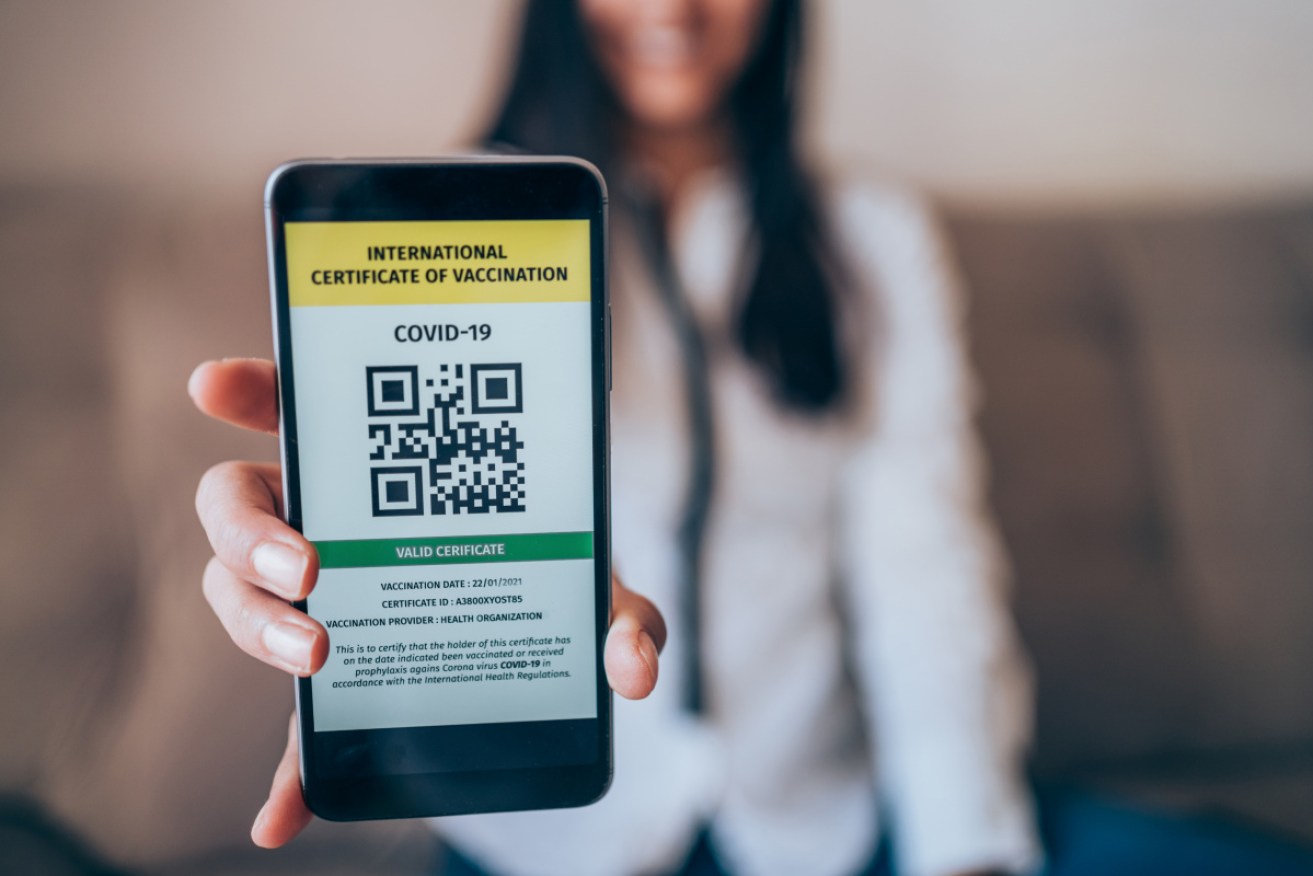Vaccination check-ins at pubs and restaurants a question of when, not if


A combination of vaccine passports and QR code check-ins are on the way in Australia. Photo: Getty
Being asked to show proof of vaccination to enter Australian pubs, restaurants and other hospitality venues is a question of when, not if.
And the prospect of being denied access to such venues might be the only ‘incentive’ Australia needs to reach an ideal 80 to 90 per cent vaccination rate.
Speaking to the ABC’s Insiders, shadow health minister Mark Butler said he supported the introduction of targeted vaccine mandates once all Australians had been offered a chance to be vaccinated.
The Prime Minister Scott Morrison had thrown his support behind the idea last week.
“I think that’s where we’re headed. I think we’ve got a strong view that that is where we’re headed,” Mr Butler said in response to David Speers’ question about proof of vaccination.
It followed the publication of a survey in the Nine newspapers that found more than two-thirds of Australians support vaccine passports, mandatory jabs for high-risk workers, and barring unvaccinated people from entering workplaces and hospitality venues.
Equity Economics health economist and non-executive director at Royal Melbourne Hospital Dr Angela Jackson agreed with Mr Butler that the introduction of vaccine passports was inevitable.
“I think they are going to be a necessary part of reopening to ensure we can reopen as much as possible,” Dr Jackson told The New Daily.
“It makes sense to have that sort of dual approach where you might have certain freedoms for those people who are vaccinated that not everyone can benefit from.”

No jab, no travel, no drink: Australians are hearing the message. Photo: Getty
But Dr Jackson said cash incentives were probably unnecessary.
Although they have helped to boost vaccination rates elsewhere, increasing freedoms for vaccinated Australians would likely be enough of an incentive to drive rates higher in Australia, she said.
Leading economists polled in the Economic Society’s monthly survey have voiced similar concerns, with many worried the introduction of cash incentives would change the debate to “what’s in it for me?”.
And the federal government’s behavioural economics team believes that “financial incentives or lotteries [would be] unlikely to drive uptake” of vaccines.
“We’ve paid a big price in terms of lost freedoms in Australia compared to internationally – we haven’t been able to travel freely overseas for 18 months, so I think there’s already enough incentive for us to get there,” Dr Jackson said.
“It may be that a lot of those mechanisms aren’t necessarily needed in the Australian context.
“It comes down to what freedoms do you have and [what do you not] have. And the vaccine passports, I think, will play an important role in that.
“We’ve seen overseas, if you can’t go to a restaurant unless you’ve been vaccinated, people suddenly start getting vaccinated at much higher rates. It’s something people want to be able to do.”
Qantas is planning to restart flights for vaccinated travellers to the US, Britain and Canada once the crucial 80 per cent target has been hit. It expects this could happen by December.
It’s a problem of supply

Thousands of Australians have lined up for vaccination in recent weeks. Photo: AAP
At the moment, though, talk of vaccine mandates is premature.
The main problem plaguing the vaccine rollout is a lack of supply rather than insufficient demand.
“There’s a lot of different mechanisms that they can look at when the time comes, but I think what we are seeing is as soon as supply is increased people are getting vaccinated,” Dr Jackson said.
She said it was still taking some people hours to book an appointment online or on the phone.
“You’ve got to have that time to do that and not everyone has that time – it’s not that easy for everyone to do that,” she said.
“As it gets easier, more people will do it.”
Government statistics released on Sunday show the federal government administered 220,686 vaccines on Saturday – bringing the proportion of over-16s to have received a first and second dose to 57.5 per cent and 34.2 per cent respectively.








